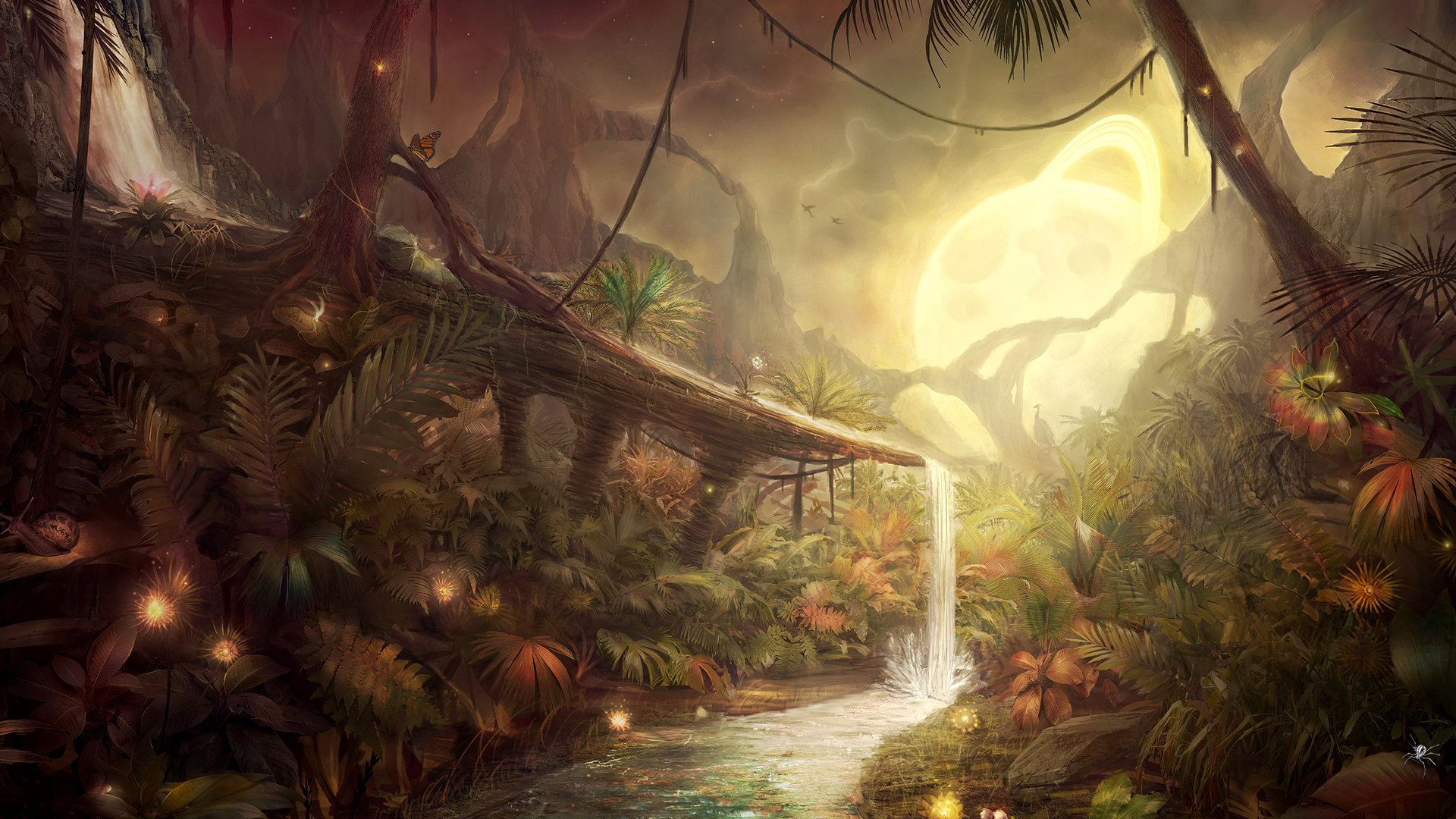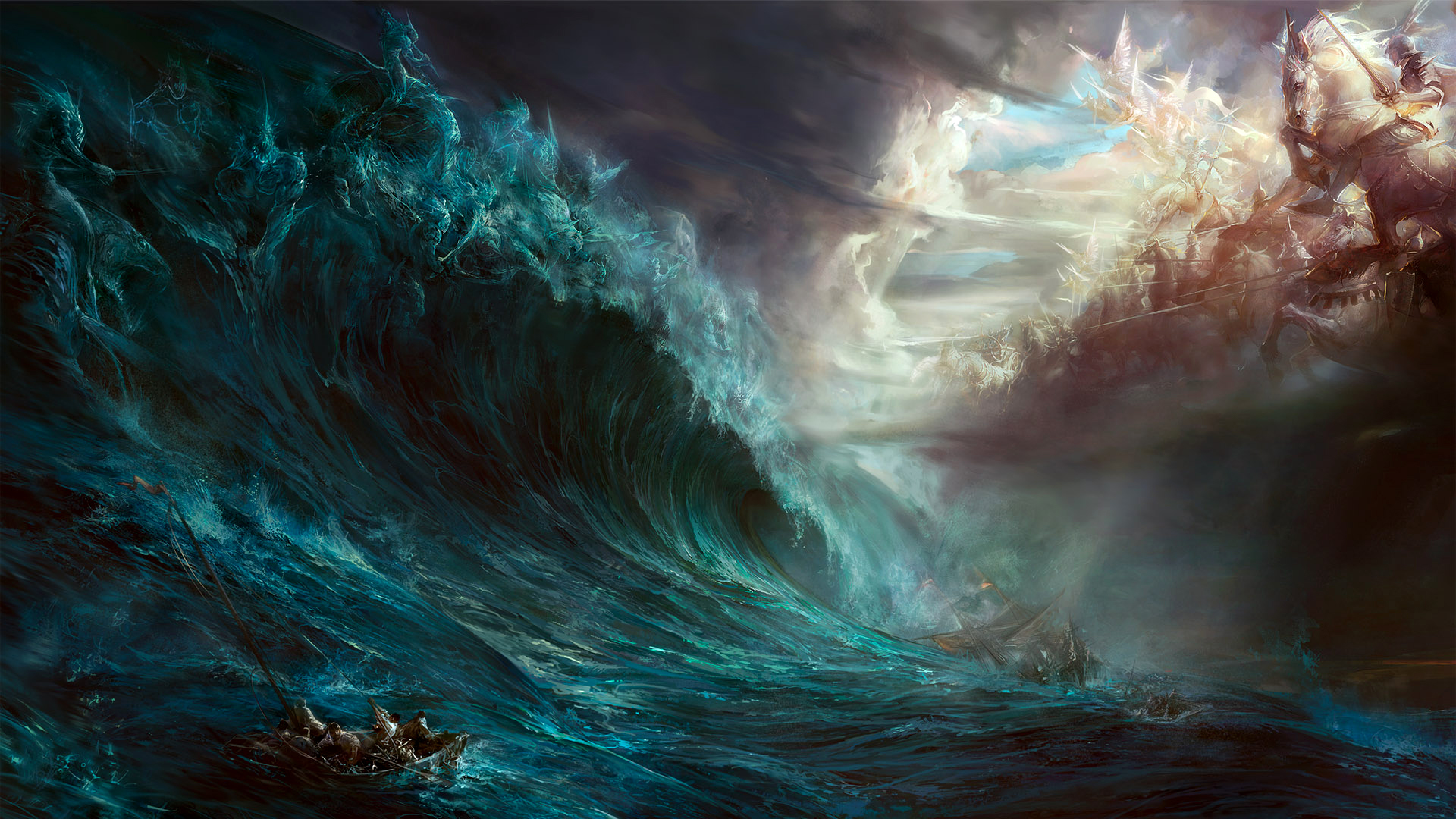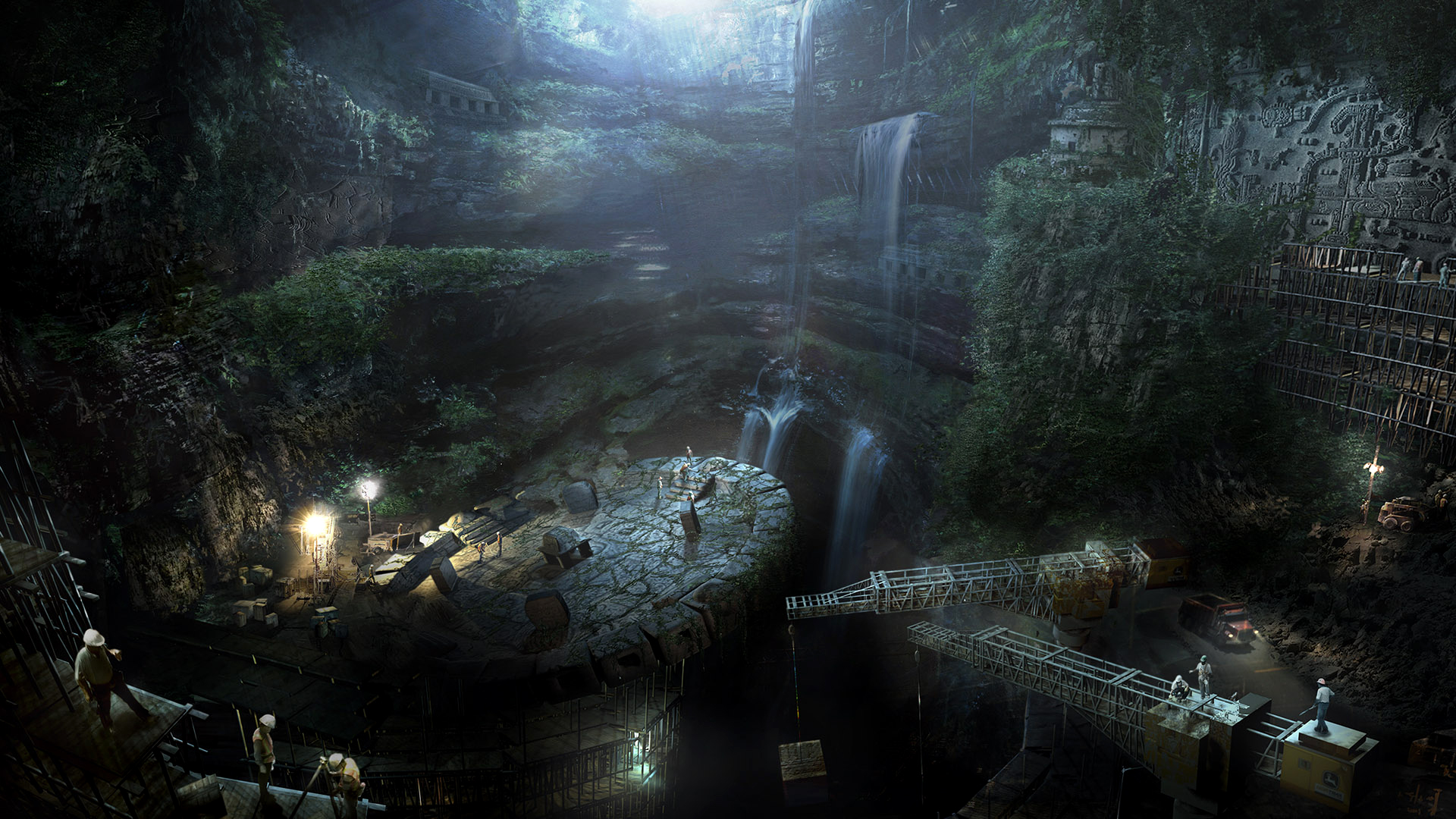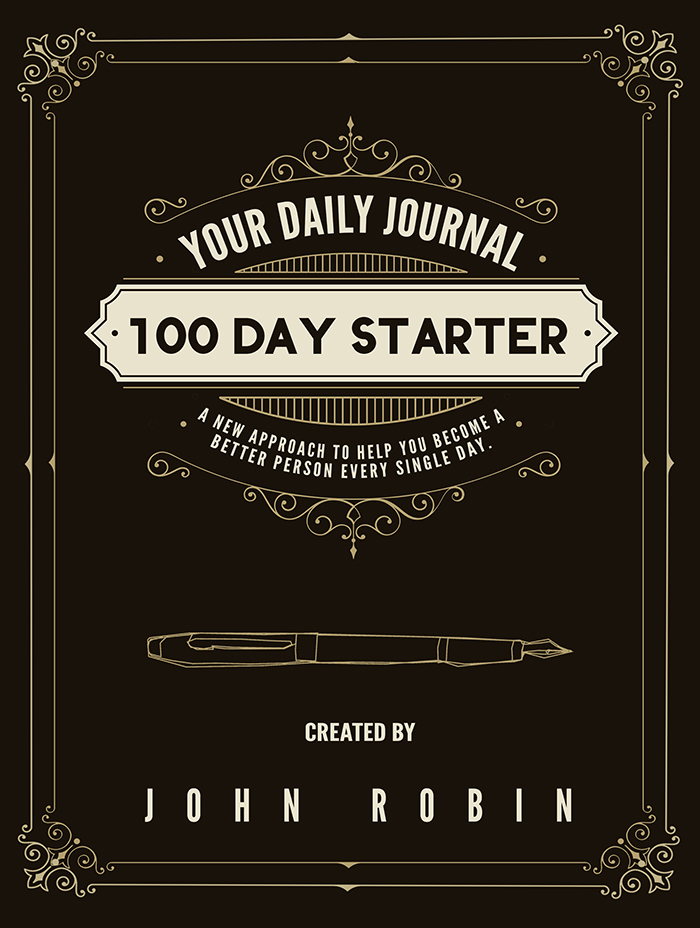Welcome back to World Builders 3.0! For those who enjoyed the previous incarnations of World Builders, this next generation is going to zero in more on the process of worldbuilding itself while I work with fellow fantasy author and worldbuilding buff, Malkuthe Highwind to build through our posts a rigorous guide for fantasy world builders.
In our kickoff post, we found our way to a good starting point, the question, “Why are you building this world” and the related 6 answers worth exploring in greater depth. This post, and for the next 5, we’re moving to level 1, where we’ll spend time with each aspect to map out further questions that arise.
To refresh you, here’s the road map:
- Why are you building this world? (–>LEVEL 0, last post, read it here)
- To develop character (–>THIS POST, level 1-1)
- Further meta-questions about ways we can develop world from character, i.e. questions about vocation, family, race, religion, attitudes, etc.
- To develop plot (–>NEXT POST, level 1-2)
- Further meta-questions about ways we can develop world from plot, i.e. questions about group motivations, political motivations, individual motivations, etc.
- To develop setting (level 1-3)
- Further meta-questions about ways we can develop world from setting, i.e. questions about history of setting, architecture, people who inhabit, etc.
- To develop story (level 1-4)
- Further meta-questions about ways we can develop world from story, i.e. questions about world context, cultural context, historical context, influencing world elements, etc.
- To develop world itself (level 1-5)
- Further meta-questions about ways we can develop world from world itself, i.e. questions about what nations exist, world economy, all races, world history, etc.
- To develop elements of the world (level 1-6)
- Further meta-questions about ways we can develop world from world elements, i.e. questions about a given relic, calendars, languages, religions, etc.
- To develop character (–>THIS POST, level 1-1)
Building a world for character: where to start
John: With regard to building world for character, there’s a lot of places we can start, family, friends, occupation, race, culture, daily life, beliefs. I realize building world for character leads into a whole other universe beyond worldbuilding, the realm of story itself and you can consult numerous craft books on the nuances of what make characters engaging. But I’m not interested in that for worldbuilding. Rather, what I’d like to see is the building blocks of a character as that character relates to the world, and the world as it comes to life through asking questions about that character and where that character fits in the world.
In that light, and given our goal to map out lots and lots of questions, but to ultimately try and find categories they might fit into, to help us proceed with rigor what would you say are some fundamental questions to ask about character as it relates to building world?
Malkuthe: Well, I think that before we go into any questioning to do with worldbuilding for the sake of characters, we have to make sure that we know the kind of scope that this type of worldbuilding would, at least initially, have. Whenever you’re worldbuilding for a character, you’re going to want to pay close attention to something that’s more “insular,” so to speak. Worldbuilding for a character entails focusing on the character’s immediate surroundings because those are going to be the most important aspects to that character.
Continuing that thread of thought, I think that one of the most important questions to ask about a character is this: “where do they come from?” Your answer doesn’t have to be anything specific or detailed. It could be as simple as “they come from a rural village high up in some mountains” and you’ll be able to pull enough information from that to not only develop your character but also their surroundings.
That’s my opinion, at least. What do you think? Does my question focus too much on the character as opposed to the world itself?
John: I think this makes a lot of sense. How you build world through character is going to depend on how that character interacts with the world, and yes it makes sense to start insular and work broader. For example, asking questions about that character’s day to day life is going to focus on more local events than questions about the history of the character’s household.
Personally, when I build world through character it usually comes as a by-product of sketching out the character’s desires and fears. Somewhere in this there are details about how they exist in the world and that leads to questions. For example, in Blood Dawn, when I first met Manwen, I knew he longed to be free of his duty as a soldier so he could run away and explore the world, but he was afraid of turning out to be a failure in life. This led naturally to questioning more about what kind of soldier he was (and developing Gholheim’s military history), as well, it led to questions about Manwen’s house history, since exploring why he thought he’d be a failure in life goes back to his upbringing under his stern father’s foot, and that in turn got me curious about where his father got that behavior from, which led to painting the context of the world during the Fall after Azzadul’s curse darkened Gholheim. Although these questions unfolded naturally as a result of encountering story, it’s easy for me to see how the process of building the world through the window of Manwen’s character in fact started insular and extended to more global.
So with this in mind, I realize that my essential starting point for character and yours intersect, somewhat. Your question, “Where does a character come from?” is a bit more contextual to world, whereas my exploration of a character’s desire and fear can easily step into this terrain.
Insular character questions: deeper clues to world context
John: Putting this all together, we might establish, when building world through character, that one follow the “Insular questions” first, and define these as:
- What does your character desire?
- What does your character fear?
- Where does your character come from?
From that point forward, given the information, I can see this proceeding two ways. 1) Answering “Fallout questions” which arise from the answers to these three Insular Questions; 2) Answering further “Global questions” that might make sense after knowing the answer to these Insular Questions.
My question now for you would be: what would your next questions be after answering these fundamental questions?
Malkuthe: I like where you’re going, so I’m definitely going to build off of those three questions you outlined there. I think what’s important to point out is that here, by asking what our character’s desires and our character’s fears are, we are establishing an outline for their personality. We are setting them goals, be it long term or short term, and we are giving them flaws. I think that the next logical step would be to ask “who is your character?” not in the sense of “what is the name of your character” but rather “what traits are there at the core of this character that make them this character?”
Once we have the core of our character established, and maybe a rough personality built around that core, it’s important to ask the questions of how these personality traits arose. “How was your character reared? What legacy, if any, does your character have to live up to? What class do they belong in? How does their environment affect them? How does the history of the world factor in to what they are?” Basically, these questions, I think could be condensed into “How did your character develop these traits?”
I think that’s the logical progression, but I can’t quite think up where to go from there. Maybe you have some insight on the matter?
7 doors open: glimpses into level 2, via “why” and “how”
John: Mentioning traits is an excellent idea, in fact, returning to the principle of working from insular and extending to more globally, perhaps this is a good way to organize our questions so far:
- Insular character questions
- What does your character desire?
- What does your character fear?
- What traits define the core of your character?
- Global character questions:
- How was your character reared?
- What legacy, if any, does your character have to live up to?
- What class does you character belong in?
- How does your character’s environment affect them?
- How does the history of the world affect who your character is?
Here, I’m latching on to your idea to question “Who is your character,” but specific questions like the ones you break down above are great because “Who is your character,” posed as a question to a brainstorming author, can lead in many directions, whereas the specific questions you mentioned provide great focus. Although those global questions stem from the umbrella question “How did your character develop his/her traits,” I think it’s good to separate “Who am I” questions from “How did I become who I am” questions.
What do you think—is this list complete enough as a starting point? I know for myself if I took a given character and explored these questions, I’d no doubt generate enough information that would lead me to ask deeper questions, and go searching for answers, about the world itself.
Malkuthe: Oh this list of character questions is great. It certainly is comprehensive enough that anyone starting out with building a world using a character as a core will find it useful. The good thing about this method of worldbuilding, in particular, is that more questions arise from your answers to these questions so while this might not cover all of our bases when it comes to characters, as these questions are answered, no doubt we will have to touch on the most important aspects of character development.
The most important thing to remember for both the burgeoning and the expert worldbuilder is to keep asking ‘why’ and ‘how.’ The details of ‘who,’ ‘what,’ ‘where,’ and ‘when’ don’t really matter as much when it comes to building a character as motives, personality, and history are what truly define a character.
John: I think it’s a great idea to limit questions to “Why” and “How”. Building character is a rabbit hole unto itself and the other four types of questions are great, but already just with these two types one can go a long way.
For the sake of our questions in the list above, and to clarify for our audience, when you talk about these “Why” and “How” questions, you’re talking about the types of questions which branch off the answers to each of the major questions in our list right?
Malkuthe: Right!

John: Okay, great. Well, each of these questions could be a topic of its own. For our series, let’s keep working through the other 5 aspects of ways to build world, laid out in our first post (but I’ll put the updated tree below). When we’re done, I’d love to come back to character and do a more advanced treatment of each question. What do you think?
Malkuthe: I think that that’s definitely the way to go. In an ideal world, as far as I’m concerned, at least, the world itself should influence the development of a character and generally not the other way around since if we look around us, everyone we know is shaped by their environment, both social and physical. So I think it’s important that we go even deeper into building the setting before we go any further with the character.
I hope you’ve all found inspiration in this first of 5 deeper explorations of worldbuilding! With this being worldbuilding season here on EFW, you can look forward to future posts from us soon as we work in top-down fashion and as Malkuthe educates me in his rigorous top-down process.
Please, if you have any questions, let us know in the comments. We’ll factor it into our future explorations.
***
Malkuthe is the author of Dwindling Glory, an LGBT+ novel series that tackles the perils of religious radicalization and speculates about a world where fundamentalism has gone rampant. He is currently a student of Physics and Astronomy at the University of Manitoba, but he is a writer and a worldbuilder first and foremost. With nearly nine years of worldbuilding experience for everything from novels to short stories to forum roleplays to Dungeons and Dragons campaigns, he is a self-proclaimed worldbuilding buff with a penchant for High Fantasy.
He has an in-development setting that he hopes to use for future Dungeons and Dragons campaign which is visible to the public: The Shardscape.




Some truly marvelous work on behalf of the owner of this web site , dead great articles . Rhona Bradley Ivy